
Jake Brooker
Research Associate in the Department of Psychology, Durham University
I am a postdoctoral research associate studying comparative psychology in great apes. My research interests include empathy and other emotional processes, decision-making, rationality, conflict management, and individual and group-level variation in the aforementioned concepts.
I have worked with captive, wild, and sanctuary-living populations of primates. My current research is focused on great apes, but I have interests in and some experience studying human populations. I completed my Bachelor's and Master's degrees at the University of Kent and my PhD at Durham University, where I now work.
Less ![]()

Jake Earl
Adjunct Lecturer of Philosophy, Georgetown University
Jake Earl is Adjunct Lecturer of Philosophy at Georgetown University and a professional bioethics consultant. He completed a postdoctoral fellowship in bioethics at the National Institutes of Health Clinical Center and worked as a clinical ethicist at a comprehensive medical center. He holds a PhD in philosophy from Georgetown University, and his research interests include topics such as procreation and parenthood, biomedical research and innovation, population and climate change, and infectious disease.
Less ![]()
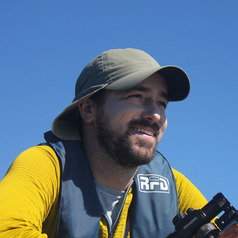
Jake Linsky
Marine mammologist that studies the health and foraging ecology of baleen whales.
Less ![]()
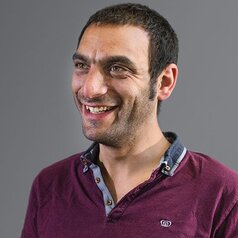
Jake Phillips
Reader in Criminology, Sheffield Hallam University
I have been at Sheffield Hallam University since 2012. Prior to this I completed my PhD at the University of Cambridge. I have carried out research across prison, probation, parole, youth justice and criminal justice inspection. My research focuses on the intersection between policy and practice in criminal justice and I have particular expertise in emotional labour, staff well-being, probation policy, privatisation and technology.
Prior to doing my PhD I worked in various roles in the community with offenders. I also have an MSc in Criminology and Criminal Justice from Edinburgh University.
Less ![]()
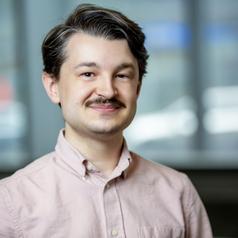
Jake Pitre
PhD Candidate in Film & Moving Image Studies, Concordia University
Jake Pitre is a PhD student in Film and Moving Image Studies at Concordia University. He received his master’s degree in Film Studies from Carleton University in 2018. His research areas include platform/digital studies, media industry studies, and queer theory. He has been published in New Media & Society, Transformative Works and Cultures, and FLOW. He is also coordinator at the Platform Lab, a Concordia-based research group.
Less ![]()
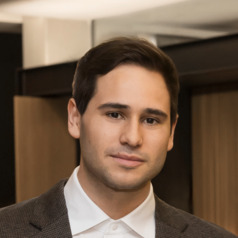
Jake Renzella
Lecturer, Director of Studies (Computer Science), UNSW Sydney
Dr Jake Renzella is the Director of Studies (Computer Science), and Co-Head Computing and Education Research Group at the University of New South Wales' School of Computer Science and Engineering. Jake’s research focus is on designing and evaluating pedagogically-sound Artificial Intelligence-based tools for use in Education contexts. Jake is the Computer Science Academic Lead of Sunswift Racing, and Co-Founded educational platforms used at several Australian universities.
Less ![]()
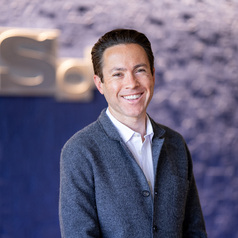
Jake Rosenfeld
Professor of Sociology, Washington University in St Louis
Jake Rosenfeld's research and teaching focus on the political and economic determinants of inequality in the United States and other advanced democracies. He is primarily interested in the determinants of wages and salaries, and how these vary across time and place. He received his Ph.D. from Princeton University.
Rosenfeld's 2014 book What Unions No Longer Do (Harvard University Press) shows in detail the consequences of labor’s decline: curtailed advocacy for better working conditions, weakened support for immigrants’ economic assimilation, and ineffectiveness in addressing wage stagnation among African-Americans. The book has received wide attention in the national press and in such outlets as The New Yorker and Harvard Business Review.
His 2021 book, You're Paid What You’re Worth and Other Myths of the Modern Economy (Harvard University Press), seeks to answer the basic question: who gets what and why? He argues that four dynamics are paramount: power, inertia, mimicry, and demands for equity. Power struggles legitimize pay for particular jobs, and organizational inertia makes that pay seem natural. Mimicry encourages employers to do what peers are doing. And workers are on the lookout for practices that seem unfair. Rosenfeld shows us how these dynamics play out in real-world settings, drawing on cutting-edge social science, original survey data, and a journalistic eye for compelling stories and revealing details. The book has been featured in the Wall Street Journal, Washington Post, and Harvard Business Review.
Less ![]()
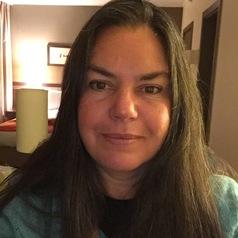
Jakelin Troy
Director of Aboriginal & Torres Strait Islander Research Office, University of Sydney
I am a Ngarigu woman of the Snowy Mountains in Southern New South Wales, Australia. I have studied widely, in Australia, Japan and Mexico particularly in the fields of linguistics, anthropology, visual arts, education, archaeology and language learning. I have a BAHons(1st) in anthropology from the University of Sydney. My PhD is in linguistics from the Research School of Pacific and Asian Studies, Australian National University. I have a Graduate Diploma in Secondary Education from the University of Canberra. I am now research Professor at the University of Sydney where I work with Professor Shane Houston, the Deputy Vice Chancellor, Indigenous Strategy and Services. In my role I support Indigenous researchers and research projects across the University, with other Australuan universities and internationally to get the best possible research outcomes for Indigenous peoples worldwide.
Less ![]()
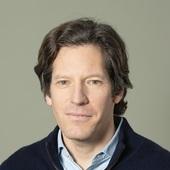

Jakub Hlávka
Research Assistant Professor of Health Policy and Management; Schaeffer Center Fellow, University of Southern California
Jakub Hlávka, PhD, is a fellow at the USC Schaeffer Center. He is also a research assistant professor in the Health Policy and Management Department of the Price School of Public Policy at USC. His NIH-funded research focuses on the modeling of dementia treatments and associated economic challenges, with a specific focus on Alzheimer’s disease and emerging disease-modifying therapies. His modeling of COVID-19 pandemic interventions has been supported by the CDC and DHS, and his broader research interests include innovative payment models for pharmaceuticals, health system reform and the study of inequality, with current funding from the Greenwall and PhRMA foundations. Dr. Hlávka teaches in master’s programs at the USC Price School of Public Policy and the Keck School of Medicine.
Outside of USC, Prof. Hlávka is a research consultant for the National Academies of Sciences, Engineering, and Medicine (Committee on Improving Representation of Women and Underrepresented Minorities in Clinical Trials and Research) and a member of the International Pharmacoeconomics Collaboration on Alzheimer’s Disease (IPECAD). He has additional professional experience from Genentech where he worked on R&D portfolio planning and as a consultant to the Tufts Medical Center's Center for the Evaluation of Value and Risk in Health. In volunteer capacity, he works closely with a hospital and schools serving vulnerable populations in the Dandora area of Nairobi, Kenya.
Aside from health policy and economics, he has co-authored studies in national security, aerospace and emerging technologies and has served in research and consulting roles at the Fraunhofer Society (Germany), RAND Europe in Cambridge (England), and at the Office of the Government and Ministry of Finance in Prague (Czech Republic).
Dr. Hlávka holds a PhD and MPhil from the Pardee RAND Graduate School, a master’s degree from Georgetown University, Edmund A. Walsh School of Foreign Service, and an undergraduate degree from the University of Economics in Prague.
Less ![]()
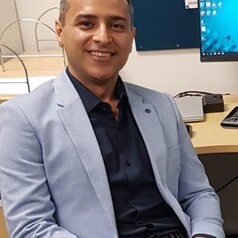
Jamal Abarashi
Lecturer, International Business, Strategy and Entrepreneurship Department, Auckland University of Technology
Dr. Jamal Abarashi is a lecturer at International Business Strategy and Entrepreneurship Department at AUT. His research examines cultural and sociological approaches to consumer behaviour and covers areas of consumer culture theory. His current projects explore areas such as ethical consumption, symbolic pollution, and sharing economy.
Less ![]()
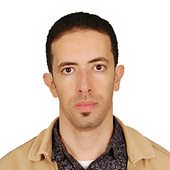
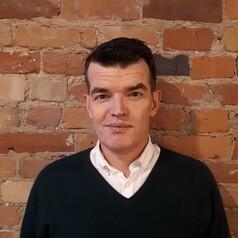
James Abbott
Assistant Professor, Department of Geography, Nipissing University
My interests have always concerned how the human and natural environments interact and shape each other. My doctoral research examined fisheries livelihoods in southern Africa, on a stretch of floodplain river shared by Botswana, Namibia and Zambia. I have taught at Temple University in Philadelphia and Nipissing University in North Bay.
Less ![]()
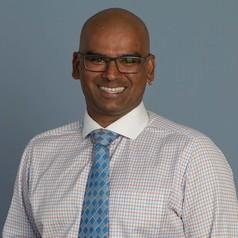
James Armitage
Associate Professor in Vision Science, Optometry Course Director, Deakin University
I am a practicing optometrist, active researcher and the Course Director of the Deakin Optometry program. I have enjoyed a diverse academic career due to the fact that my PhD studies allowed me to study a number of quite different topics including the electrophysiological function of the eye, the role of maternal diet and the controllers of fetal development.
I am regularly faced with trying to encourage my patients to take good care of their eyes in an environment where online shopping may result in them failing to understand the importance of taking care of eye health.
Less ![]()
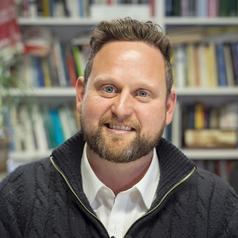
James Barry
Research Assistant, Anthropolgist, The University of Melbourne
James Barry, PhD, is an anthropologist specialising in ethnic and religious minority identities. He is the author of "Armenian Christians of Iran: Ethnicity, Religion and Identity in the Islamic Republic". He is currently working with Dr Simon Wilmot on a documentary film about Muslim Anzacs in the Second World War.
Less ![]()

James Beale
Senior Lecturer in Sport Psychology, University of East London
I am a Sport and Exercise Psychologist. I have been at the University of East London since 2002 where I hold the position of Senior Lecturer In Sport and Exercise Psychology and run the MSc In Applied Sport and Exercise Sciences.
I am a BPS chartered psychologist and a HCPC practitioner psychologist. I am also an associate fellow of the BPS.
I work extensively in elite sport including the English Premier League, First Class County Cricket, Olympic and Paralympic Sport, Elite League Speedway and Ballroom Dancing.
Less ![]()

James Boon
PhD candidate in Marine Ecology, University of Nottingham
James Boon is a PhD student at the University of Nottingham. He is interested in how refuges influence the ecology of coral reef fish communities and non-native species.
Less ![]()
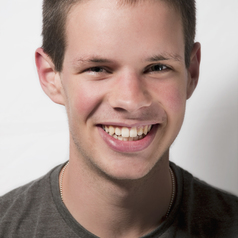
James Borrell
James is a PhD student at Queen Mary University of London. He is interested in conservation and population genetics with a focus on woody plants. His current research seeks to understand the decline of Dwarf Birch in the Scottish Highlands due to habitat fragmentation, climate change and population genetic processes.
James also has extensive field experience on biodiversity research expeditions around the world, from the deserts of Arabia, to the Amazon rainforests. He founded the social enterprise Discover Conservation, and is passionate about citizen science and public engagement. James also speaks regularly to a variety of audiences across the UK.
For more information, please visit www.jamesborrell.com
Less ![]()
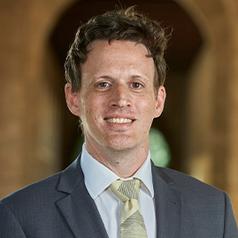
James Bowen
Policy Fellow, The University of Western Australia
James Bowen is a Policy Fellow at the Perth USAsia Centre. His work focuses on energy, climate, geoeconomics and broader processes of Indo-Pacific integration. James was a Non-Resident Research Fellow at the Centre from 2018 to 2020.
Less ![]()

James Brackley
Lecturer in Accounting, University of Sheffield
James Brackley is a Lecturer in Accounting, specialising in Financial Reporting, Audit and Public Sector Accounting. James' PhD project was on the transfer of Public Health to Local Authorities following the 2012 Health and Social Care Act. He is also an ICAEW Chartered Accountant, qualifying in the Public Sector practice of PwC.
His research interests include Science and Technology Studies based theorisations of how things are made valuable in public life via accounting representations in a range of empirical settings. These include the Audit industry, local government, healthcare and higher education.
James convenes the Critical Accounting Podcast, which you can follow on Twitter or subscribe to on YouTube.
Less ![]()
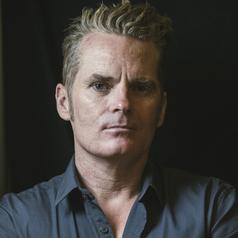
James Bradley
Honorary Associate, Sydney Environment Centre, The University of Sydney., University of Sydney
James Bradley is an author and critic. His books include the novels Wrack, The Deep Field, The Resurrectionist, Clade and Ghost Species, a book of poetry, Paper Nautilus, and The Penguin Book of the Ocean. In 2012 he won the Pascall Prize for Australia's Critic of the Year. His latest book is Deep Water: The World in the Ocean.
Less ![]()
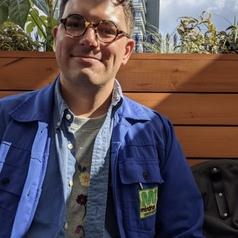
James Brocklesby
Lecturer in History, Sheffield Hallam University
My expertise lies in the enduring legacies of European imperialism, with a particular focus on the British Overseas Territories. I explore the historical and geopolitical factors that explain why Britain continues to maintain control over these seemingly small and isolated 'dots on the map.' By examining their historical context, I aim to uncover the strategic, political, and cultural reasons behind their ongoing significance in global affairs
Less ![]()
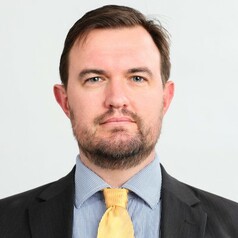
James Bushell
PhD Candidate and Research Associate, Institute of Transport and Logistics Studies, University of Sydney
Bachelor of Agricultural Economics (Hons 1)
Graduate Diploma Chartered Accounting
Chartered Accountant
Less ![]()


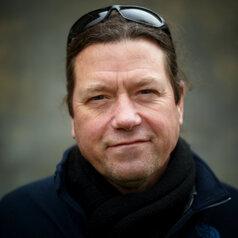
James Canton
Lecturer in Literature, University of Essex
I have written widely in creative non-fiction forms and taught on the MA in Wild Writing at the University of Essex since its inception in 2009. I have run many workshops to encourage writing on nature and landscape, and worked on Radio 4 detailing the writing and landscapes of Essex such as for ‘Something Understood’ on John Clare and Epping Forest (August 2014) and ‘Open Country’ on Tollesbury Wick and literary Essex (November 2015).
My books include Out of Essex: Re-Imagining a Literary Landscape (2013) which was inspired by rural wanderings in the county and Ancient Wonderings: Journeys into Prehistoric Britain (2017) that tells some remarkable tales of life in ancient Britain. The Oak Papers (2020) – Radio 4’s Book of the Week – explores some of the ties between humans and oaks since prehistory, meditating on our need to connect with the natural world. My latest book, Grounded (Canongate, 2023) tells of rediscovering the most sacred spaces in our landscapes – both natural sites and human places – seeing the lessons we can learn from our ancestors and their relationship with the land. My forthcoming book, Renaturing (due out March 2025) investigates ways of democratising rewilding, how we can all be involved in nature restoration.
Less ![]()
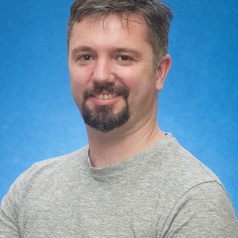
James Carney
Senior Research Associate (Psychology), Lancaster University
At the broadest level, my research is concerned with the cognitive and cultural factors that inform how human beings think about, create and communicate representations. In this regard, it cuts across both the humanities and the social sciences. Methodologically, I am very interested in how quantitative and experimental methods can be applied to qualitative cultural and linguistic data (and particularly to 'big' data). To date, I have published on a wide variety of subjects, including experimental psychology, literary studies, anthropology, cultural studies, mythology, social media and linguistics.
I have graduate degrees in discourse linguistics, literary studies and philosophy; I have also held competitively awarded fellowships in the form of a Junior Research Fellowship (Linacre College, Oxford) and a Marie Curie Fellowship (Department of Experimental Psychology, Oxford).
Less ![]()
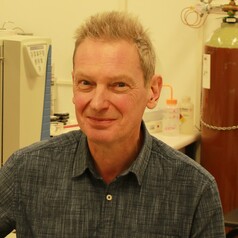
James Carter
Adjunct Research Fellow, Griffith University
Stable isotope chemist with an interest in food and forensics.
Less ![]()
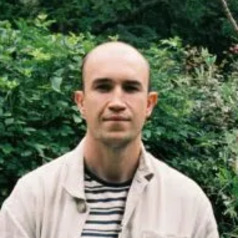
James Clark
Research Associate, School of Biological Sciences, University of Bristol
I am a Research Associate in the School of Biological Sciences at the University of Bristol.
Land plants (embryophytes) have undergone a series of whole genome duplication (palaeopolyploidy) events throughout their evolution, sparking a series of hypotheses relating major innovations and diversification to genome duplication. The purpose of my research is to explore the placement and timing of these duplications across the plant phylogeny and to test any causal hypotheses relating to the evolution of plant complexity.
Less ![]()
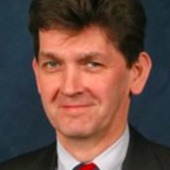
James Conroy
Professor of Religious and Philosophical Education and Vice Principal, Internationalisation, University of Glasgow
Less ![]()
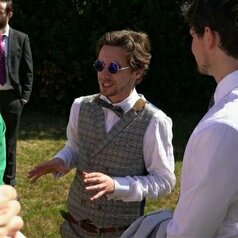
James Davison
PhD Candidate in Medieval History, University of Liverpool
James is a PhD candidate at the University of Liverpool, where he received an MA in Medieval and Renaissance Studies following a BA in History from the University of Newcastle. He is also an Associate Fellow of the Higher Education Academy.
James' PhD research approaches burials from the early Anglo-Saxon period with the perspective that transness is not a modern phenomenon, but a physical and emotional state that can be recognised in a variety of historical cultures.
James' teaching has focused on the Viking Age in the British Isles. His outreach work has included talks on the relevance of trans history in our modern world to a variety of audiences from the WI to secondary school and undergraduate students.
Less ![]()
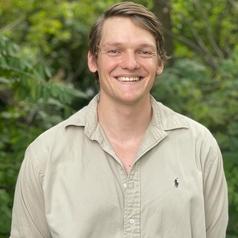
James Dowling
PhD Student, Evolution, Ecology, and Organismal Biology, The Ohio State University
Less ![]()
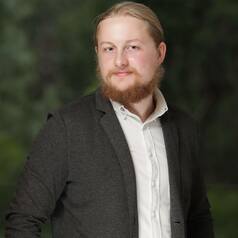
James Durl
Research Fellow, Griffith University
I'm a research fellow at Griffith University, as part of the Blurred Minds AOD prevention program. My current focusses are the Vaping epidemic, and behaviour change through Virtual Reality, Gamification and Social Marketing best practices.
Less ![]()
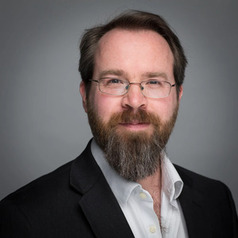
James Edwards
Associate Professor of the Oxford Skeletal Ageing and Regeneration Group, University of Oxford
James Edwards leads the Skeletal Ageing and Regeneration research group at the University of Oxford. This work is focused upon revealing causes of ageing-related skeletal decline and exploring novel approaches to better treat the consequences of musculoskeletal ageing.
Prof Edwards graduated from Wadham College, University of Oxford with a D.Phil (Ph.D.) from the Medical Sciences Division, Nuffield Dept. of Orthopaedics, Rheumatology and Musculoskeletal Sciences after completing research work studying bone tumour pathology and TNF-family ligands in the bone remodelling process. This was followed by cellular, molecular and pre-clinical research at the University of Texas Health Science Centre at San Antonio, and later as part of the founding research team at the Vanderbilt Centre for Bone Biology. During this time Prof Edwards developed a strong research theme investigating links between ageing and longevity mechanisms and the onset of musculoskeletal disease, with work recognised with ASBMR, ECTS and IBMS awards. This ongoing work forms the basis of the Oxford Skeletal Ageing and Regeneration group, which aims to understand the causes of age-related skeletal decline and better address the consequences of such disorders. In recent years, this has included the study of sirtuin biology in musculoskeletal tissues and how the acetylation status of key intracellular proteins fine tunes normal cell biology and function with increasing age, how the cellular recycling process of autophagy declines in ageing cartilage and can be activated to protect against arthritis disease, and how novel degradable alloys can improve fracture healing and bone repair.
The Oxford Musculoskeletal Ageing group has been funded by awards from Arthritis Research UK, Medical Research Council, Wellcome Trust, Orthopaedic Research UK, NC3Rs and through industry collaborations.
Less ![]()
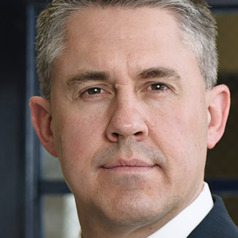
James Forest
Professor and Director of Security Studies, School of Criminology and Justice Studies, UMass Lowell
James J.F. Forest, Ph.D., is a professor in the School of Criminology and Justice Studies, where he teaches undergraduate, master's and doctoral degree courses on contemporary security studies, terrorism and counterterrorism, homeland security, weapons of mass destruction, and other related topics. He is the director of the Security Studies program and is the Editor-in-Chief of the peer-reviewed scholarly journal Perspectives on Terrorism. He has previously served as a Senior Fellow for the U.S. Joint Special Operations University (2010-2019) and as a faculty member of the United States Military Academy (2001-2010), six of those years as Director of Terrorism Studies (in the Combating Terrorism Center at West Point) and three years as Assistant Dean for Academic Assessment. He has served as an expert witness for terrorism-related court cases, and has provided testimony and briefings to the intelligence community and committee hearings of the U.S. Senate.
Less ![]()
- Market Data




















